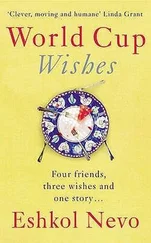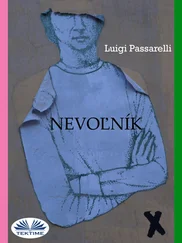Eshkol Nevo - Homesick
Здесь есть возможность читать онлайн «Eshkol Nevo - Homesick» весь текст электронной книги совершенно бесплатно (целиком полную версию без сокращений). В некоторых случаях можно слушать аудио, скачать через торрент в формате fb2 и присутствует краткое содержание. Год выпуска: 0101, ISBN: 0101, Издательство: Random House, Жанр: Современная проза, на английском языке. Описание произведения, (предисловие) а так же отзывы посетителей доступны на портале библиотеки ЛибКат.
- Название:Homesick
- Автор:
- Издательство:Random House
- Жанр:
- Год:0101
- ISBN:9781448180370
- Рейтинг книги:5 / 5. Голосов: 1
-
Избранное:Добавить в избранное
- Отзывы:
-
Ваша оценка:
- 100
- 1
- 2
- 3
- 4
- 5
Homesick: краткое содержание, описание и аннотация
Предлагаем к чтению аннотацию, описание, краткое содержание или предисловие (зависит от того, что написал сам автор книги «Homesick»). Если вы не нашли необходимую информацию о книге — напишите в комментариях, мы постараемся отыскать её.
Homesick
Homesick — читать онлайн бесплатно полную книгу (весь текст) целиком
Ниже представлен текст книги, разбитый по страницам. Система сохранения места последней прочитанной страницы, позволяет с удобством читать онлайн бесплатно книгу «Homesick», без необходимости каждый раз заново искать на чём Вы остановились. Поставьте закладку, и сможете в любой момент перейти на страницу, на которой закончили чтение.
Интервал:
Закладка:
I’m looking at the fig tree now, from the ramp. They completely knocked down Salman el-Sa’adi’s house and built a big villa where it used to be, three storeys. Only stones are left from the mosque, at the bottom of the wadi. They built a synagogue where the village square used to be. But the tree is still there, in the same place.
When we went into the house with the figs, our fingers sticky sweet, we found my mother and father and Nabil sitting on a crate, trying to lock it but they couldn’t, so we sat on it too to help, then we walked through the house to check that we hadn’t left anything important, and then we closed the door and loaded the sacks and crates on to two donkeys and started to walk in the procession with everyone else. First, we walked very quickly, then slowly. I remember — yallah , it’s amazing how fifty years suddenly shrink in my memory, as if someone put them between two rollers and pressed — I remember that I asked Mama: where’s Wasim? Because I didn’t see him there. And she said, Wasim’s father has a brother in Gaza, and they’re going to stay with him. It’ll be better for them there, but don’t worry, ya ibni , we’ll all come back to the village in two weeks and you and Wasim will be able to fight again.
Fifty years passed and I still haven’t seen him. To tell the truth, I’ve never had a friend like Wasim since then. That’s the way things go. The friendships you have when you’re a child, they’re the strongest. In prison, when I was there, I asked the Gazans if they knew Wasim, but no one did. No one had ever heard of him. I wonder what he looks like now. Whether he got married. How many children he has. What kind of job he has. Maybe he went to Egypt. Or Qatar.
And I wonder what Mama left in the house when we ran away. What didn’t she put into the two big sacks we loaded on to the donkeys? What is it that’s so important to her that she wants me to bring it back to her?
Halas , as soon as the old man and woman come back to the house, I’ll go in and find out. I don’t care what they say. And I don’t care what Rami says. Let him fire me if he wants. Let him kill me if he wants.
*
When Sima thinks about ‘the end’, she thinks about her mother, even though she doesn’t believe in such things, it’s nonsense and she knows that very well. She likes to imagine how it would be to meet her in heaven (that tzaddikah would never be sent to hell). How she’d kiss her on both cheeks (if her mother only kisses one, she knows she’s about to get told off. How she’d disappear into her arms, like a gift into its wrapping. How she’d rest on her large breasts for a moment and listen to her heart beating. Then she’d tell her about all the things she hadn’t lived to see. How much her grandson loves to climb trees. How her granddaughter is already crawling around on her hands and knees. And how her daughter Sima listens to songs in French and is never scared. Later, when darkness falls on the trees in the park, she’ll tell her secrets she’s never shared. Like she used to when she was little and they sat in the kitchen. Oh, if only she were sitting in the kitchen with her now with the clock ticking quietly on the shelf, she’d tell her things she never even tells herself. For instance, that sometimes she’s sick and tired of Lilach’s crying. That sometimes she asks, why did I need another child, why was I in such a hurry to have more? And if her mother wasn’t shocked by that confession, she’d tell her about the students who were living in the apartment next door. About Amir who, she was embarrassed to admit, she was slightly attracted to. When she’d stood next to him a few days ago, his elbow had touched hers. Unintentionally, that’s true. And she felt a kind of flash in her chest she hadn’t felt in a long time. Naturally, she didn’t do anything. Didn’t make a peep. His girlfriend is lovely and she babysits for Lilach. Almost every week. And that day, there’d been a terrorist attack. But still, Mum, a flash in my chest. What do you think of that?
Moshe almost killed his buddy in basic training. During an exercise with the whole platoon. The buddy was supposed to jump, but he did it a second too soon. Moshe was shooting at a cardboard figure and didn’t see that someone had walked into his line of fire. Stop! Stop! someone yelled. He froze on the spot. Put the safety catch back on. The commander came running over like a madman. He slapped Moshe’s helmet: what did you do, you idiot?! Then he leaped right into the ditch where Moshe’s buddy was lying in a pool of blood. The wind whistled. Dust clouds whirled. All the soldiers stopped breathing, couldn’t believe what they were seeing. Moshe closed his eyes and for a long, long, long minute, he was sure he’d killed a human being.
It turned out that the bullet had scratched his buddy’s ear and he needed a stitch or two. The next day he was back in the field, as good as new. They kept Moshe in detention for twenty-eight days. Inspections all day long, inspections of every kind. When he got out, he wiped the entire event from his mind. When his friends in the neighbourhood asked why he’d been confined to the base, he told them that the military police had caught him without a beret. That was the only thing he could think of saying. And he never talked about it again.
Not until this week, when he took his hallucinating father home from the hospital in the afternoon. He suddenly remembered it, the exercise with his platoon. He bit his lip. Why was he remembering it now, of all times? And he had that same strange feeling he’d had when his commander jumped into the ditch to see if the soldier was dead: as if an ice cube were climbing slowly up his back to his head.
*
Come over, Sima called me through the water heater hole, you have to see this.
Gina brought an exorcist to get the demon out of Avram.
What?!! I said, shocked.
Yes, it’s really amazing, Sima said. It might be good for that project of yours? On God and all that.
I wanted to tell her that the project had been scrapped a long time ago, but I grabbed a camera and ran out instead.
In the end, of course, they didn’t let me take pictures. The exorcist, Hacham Yehieh ben Amar, Yehieh ben Amar the Wise, said that demons don’t like cameras and asked me politely but firmly to put the camera back in its case. I also remembered that the witches in Bolivia wouldn’t let anyone photograph them either, so I didn’t argue (one of those witches sold a yellowish love potion in a small bottle to a friend I was travelling with. We laughed about it for hours, trying to decide whether to put it in the tea or just pour it down the sink, and the next day, she met the love of her life).
Gina, tie Avram’s hands together, Hacham Yehieh ordered, and Gina did what he said. Now his feet, he said. Gina raised an eyebrow. Sorry, Hacham Yehieh apologised, it’s so that if the demon wakes up, he won’t kick us, God forbid.
Sima and I stood on the side smirking at each other. Hacham Yehieh saw us smiling and gave us a strange look that seemed to rebuke us but also hinted that we were accomplices. He looked pretty weird, that Hacham . I would’ve expected a certified exorcist to have a tangled beard and wear a long white robe, but Yehieh had on stonewashed jeans and a rainy-grey sweater, and he fussed around Avram with quick steps that made him look almost like he was dancing.
Avram was passive, completely out of it. Somehow, his eyes followed what was going on in the room, but without offering an opinion.
Now, Hacham Yehieh said and sat down at a safe distance from Avram, now bring … but before he could finish the request, a tub full of water was put in front of him and Gina handed him a towel. She knows the drill, I thought.
Читать дальшеИнтервал:
Закладка:
Похожие книги на «Homesick»
Представляем Вашему вниманию похожие книги на «Homesick» списком для выбора. Мы отобрали схожую по названию и смыслу литературу в надежде предоставить читателям больше вариантов отыскать новые, интересные, ещё непрочитанные произведения.
Обсуждение, отзывы о книге «Homesick» и просто собственные мнения читателей. Оставьте ваши комментарии, напишите, что Вы думаете о произведении, его смысле или главных героях. Укажите что конкретно понравилось, а что нет, и почему Вы так считаете.












